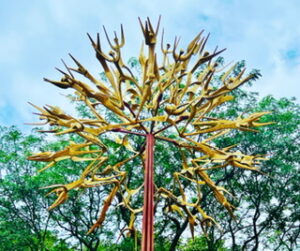
The core strength of our university is our people. UMBC is committed to empowering you and strengthening your wellbeing. Here are some resources you may find helpful.
Physical Wellbeing
Facilities at the Retriever Activities Center
Walking and jogging trails at UMBC. Come explore nature as you walk or jog around the UMBC campus community. Walking trails provide a great way for people of all ages to incorporate exercise into daily living.
Emotional Wellbeing
UMBC’s Employee Assistance Program (EAP) is designed to provide short-term counseling services for you and your dependents to help you handle concerns constructively, before they become major issues. Call anytime about concerns such as marital, relationship and family problems; stress, anxiety and depression; grief and loss, job pressures and substance abuse.
The UMBC Wellness Initiative is committed to the health and well-being of our campus community, and understands the importance of making healthy choices that lead to a healthy lifestyle. As part of this commitment, we seek to create wellness programming, activities and resources that support and sustain the emotional, environmental, financial, nutritional, physical health, and wellness of the UMBC workforce.
Spiritual Wellbeing
The Gathering Space for Spiritual Well-being serves as a spiritually-centered space where UMBC community members can gather at the intersection of religion, faith, spirituality, and other lived experiences. The Gathering Space prioritizes individual religious practice, opportunities to explore holistic well-being connected to religion and spirituality, and creating spaces to engage across difference, by centering the importance of interfaith work and dialogue. Within the Gathering Space, three core themes are emphasized for all who engage with this space: radical love & belonging, spiritual well-being, and energetic pluralism.
UMBC’s Religious Council partners with local religious and spiritual leaders to help provide support, organization, and a forum to better serve the campus community. Representing a large variety of backgrounds and experiences, Religious Council members provide pastoral care and counseling, spiritual guidance, and model the value of relationships in promoting pluralism and cooperation. Collectively, the Religious Council strives to create and support a safe and inviting environment, where spiritual exploration is encouraged and spaces for dialogue and relationships are fostered.
We have also created a searchable list of local places of worship.
